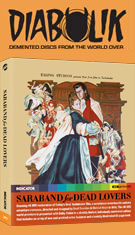
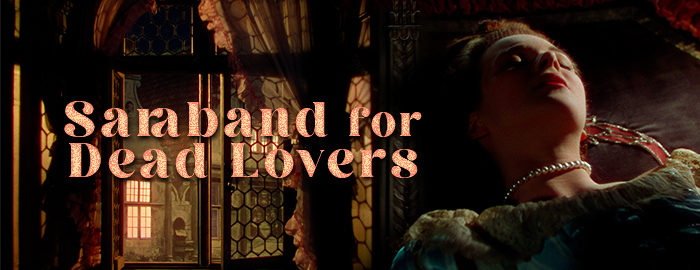
Color, 1948, 83 mins. 3 secs.
Directed by Basil Dearden
Starring
Stewart Granger, Joan Greenwood, Flora Robson, Peter Bull, Mercia Swinburne, Françoise Rosay, Anthony Quayle, Michael Gough
Indicator (UHD & Blu-ray) (US R0/RA 4K/HD), Studiocanal (Blu-ray & DVD) (UK RB/R2 HD/PAL), Filmjuwelen (DVD) (Germany R2 PAL)
By the time World War II ended, 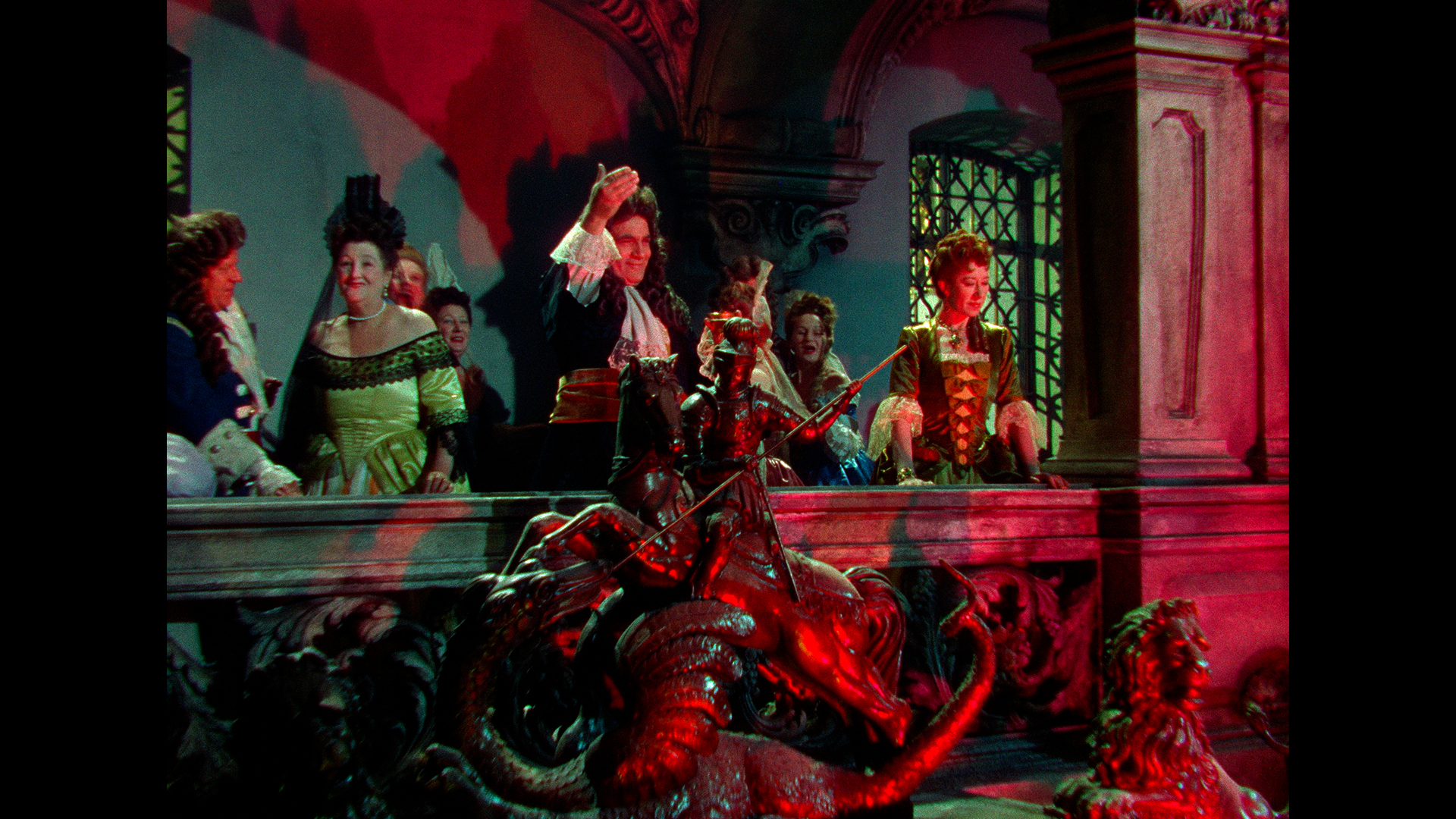 Ealing Studios had established itself as a
Ealing Studios had established itself as a 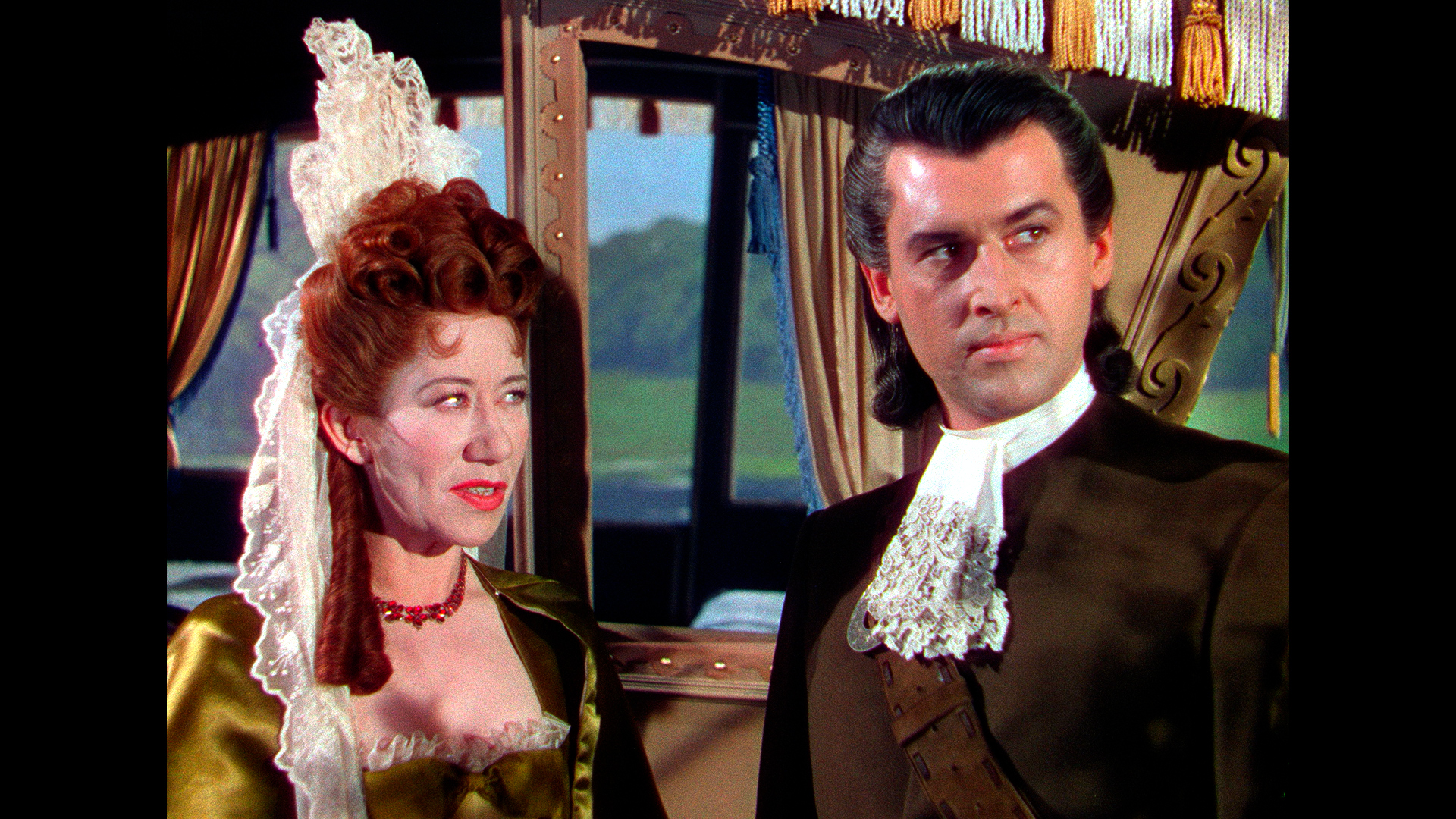 distinctive and internationally successful name for realistic dramas and emotionally powerful combat films with a wave of much-loved comedies about to start in 1948. That same year they also entered the saturated, eye-popping world of three-strip Technicolor with the opulent Saraband for Dead Lovers, a direct attempt to outdo their closest competitor at the time, Gainsborough Pictures, best known for their black-and-white costume melodramas. They even recruited Gainsborough's biggest leading man, Stewart Granger, to star along with a stable of recognizable Ealing favorites, and the result was a visually ravishing production that earned an Oscar nomination for its art direction (but somehow not for its cinematography by the legendary Douglas Slocombe, an Ealing regular). Based on a mostly factual historical novel by Helen Simpson, the film was placed in the capable hands of one of its finest directors, Basil Dearden, who had become something of a VIP there after dazzling viewers with his stylish touch in The Halfway House, The Captive Heart, Frieda, and especially the framing device for Dead of Night.
distinctive and internationally successful name for realistic dramas and emotionally powerful combat films with a wave of much-loved comedies about to start in 1948. That same year they also entered the saturated, eye-popping world of three-strip Technicolor with the opulent Saraband for Dead Lovers, a direct attempt to outdo their closest competitor at the time, Gainsborough Pictures, best known for their black-and-white costume melodramas. They even recruited Gainsborough's biggest leading man, Stewart Granger, to star along with a stable of recognizable Ealing favorites, and the result was a visually ravishing production that earned an Oscar nomination for its art direction (but somehow not for its cinematography by the legendary Douglas Slocombe, an Ealing regular). Based on a mostly factual historical novel by Helen Simpson, the film was placed in the capable hands of one of its finest directors, Basil Dearden, who had become something of a VIP there after dazzling viewers with his stylish touch in The Halfway House, The Captive Heart, Frieda, and especially the framing device for Dead of Night.
In late 17th century Hanover in Germany, young Sophie Dorothea (Greenwood) is forced by her family into an arranged marriage to the older and imposing Prince George Louis (The Old Dark House's Bull), later to become England's King George I. Neglected and frustrated for a few years after the wedding and having borne two children, she becomes attracted to childhood acquaintance Count Philip Christoph von Königsmarck (Granger) when they meet again after many years, though 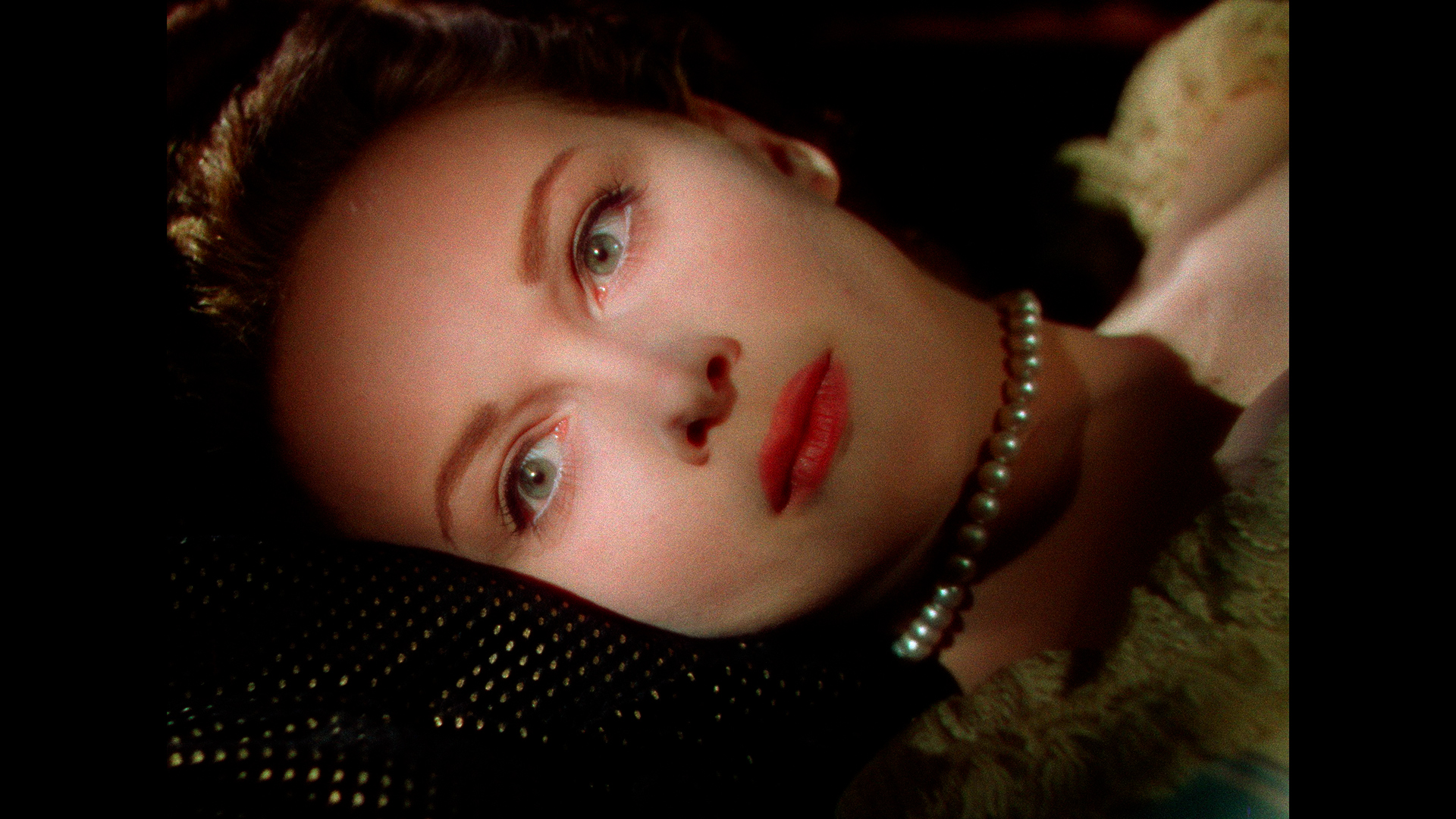 he is also the object of amorous affection from the older,
he is also the object of amorous affection from the older, 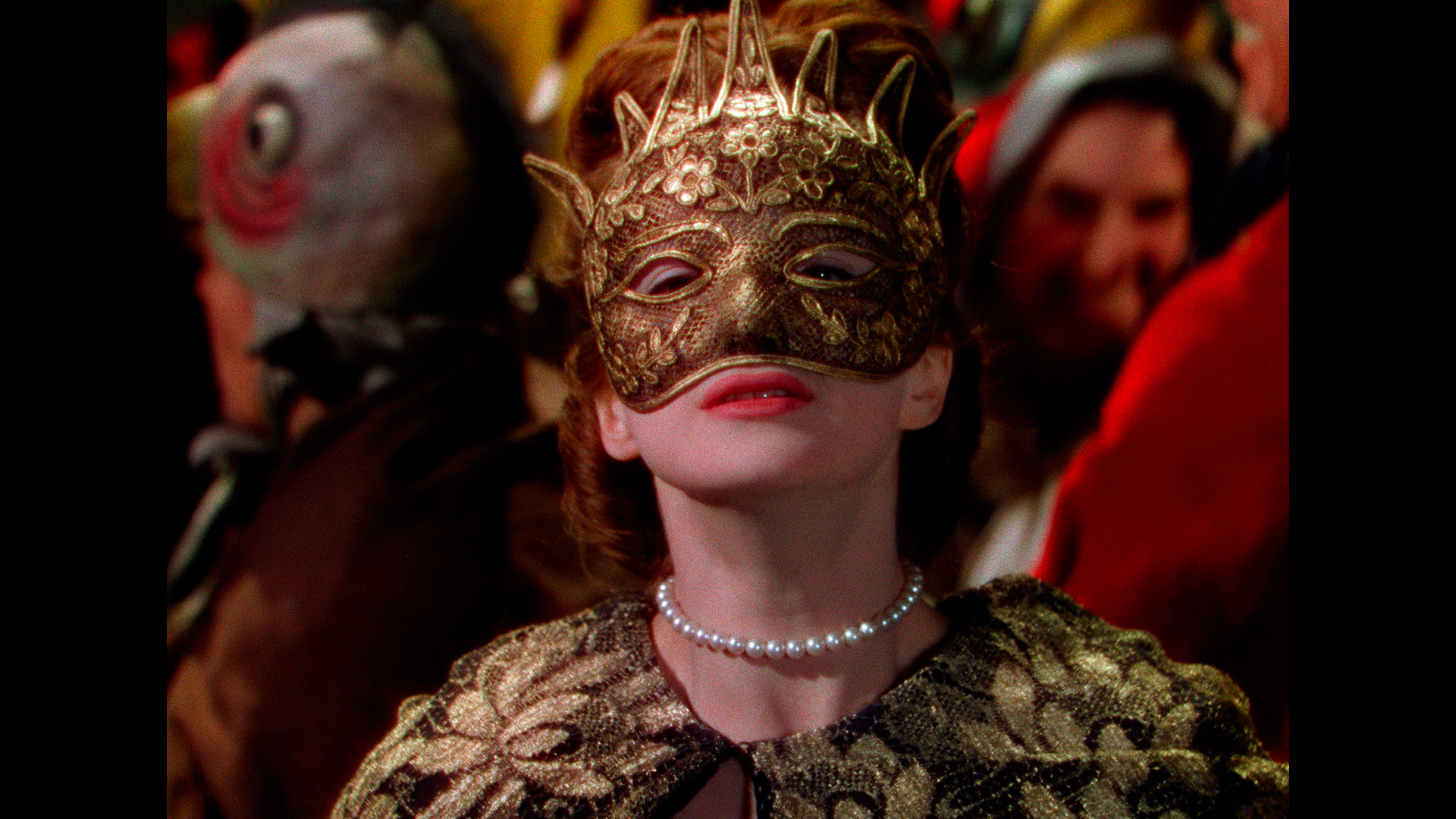 austere Countess Clara Platen (Robson). Much court intrigue ensues during wartime and peace as the evolving affair soon becomes a tool for betrayal and tragedy.
austere Countess Clara Platen (Robson). Much court intrigue ensues during wartime and peace as the evolving affair soon becomes a tool for betrayal and tragedy.
Best known for her dry wit in classics like Kind Hearts and Coronets and The Importance of Being Earnest, the impossibly photogenic Joan Greenwood (who possessed one of the screen's all-time great voices) is the real heart of this film with a slew of familiar faces surrounding her including Anthony Quayle and a small but biting role by a young Michael Gough as her brother-in-law. Granger was already being prepped for bigger things at the time, having just jumped over to the Rank Organisation and would soon break through in Hollywood in 1950's King Solomon's Mines. His usual aloof demeanor is functional enough here, but Robson and Bull really run circles around him with their superb supporting turns -- though the incredible sets, costumes, and lighting certainly don't hurt either. The title probably didn't help sell this to a lot of audience members (along with setting you up for something a little inaccurate), but the ultimately downbeat nature of the story still works with its focus on the hypocrisy of power and the cruel machinations of politics that still haven't changed all that much.
Though its Technicolor achievements were largely overshadowed by another British production the same year, The Red Shoes, Saraband for Dead Lovers (released simply as Saraband in the U.S.) had enough of a reputation that its sorry presentation on home video for decades was a depressing sight to behold. VHS copies, faded and scratchy repertory prints, and a very dingy U.K. DVD from 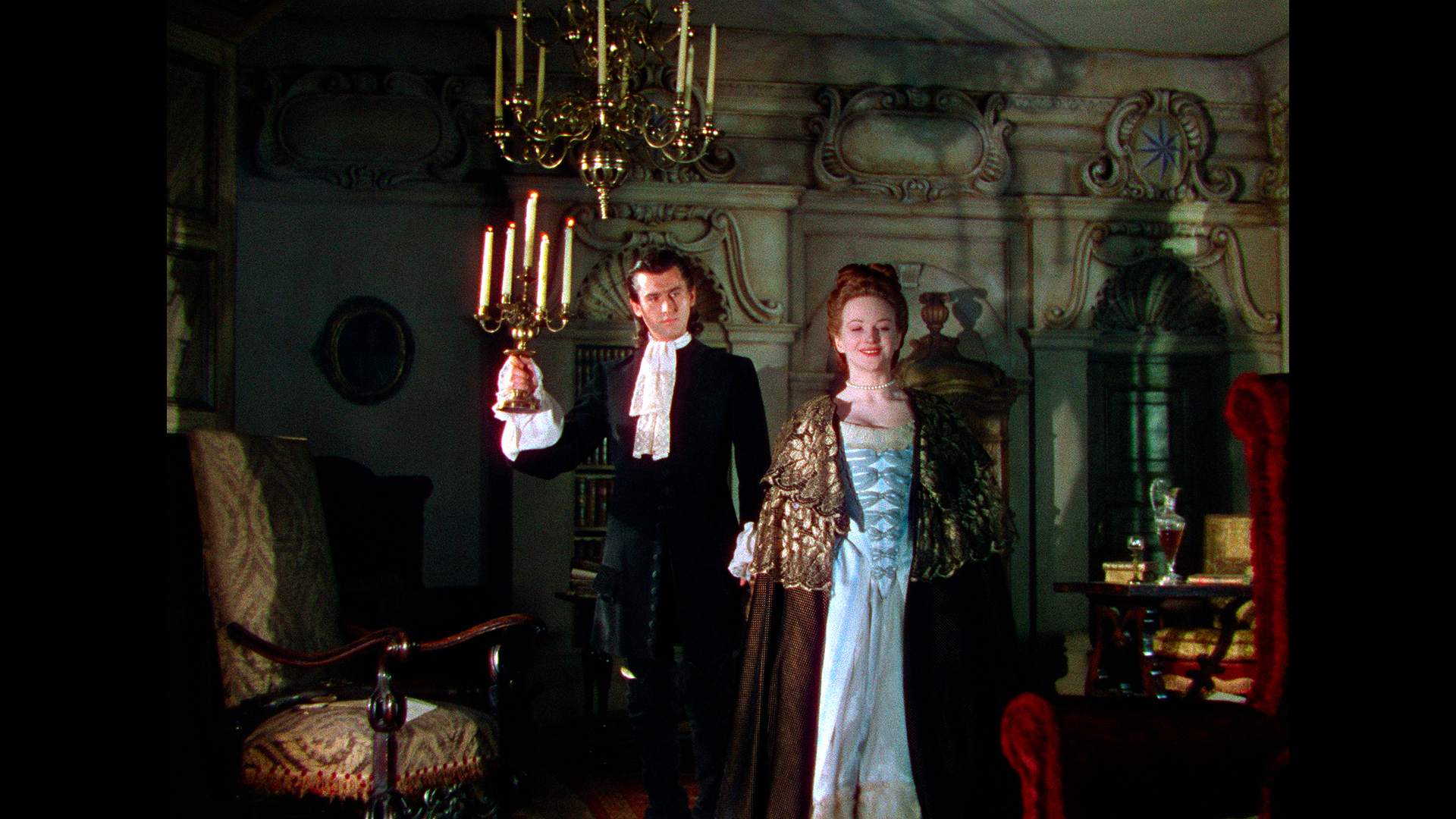 Studiocanal didn't even come close to capturing its intended look, but technology has made massive leaps in recent years when it comes to presenting three-strip productions accurately
Studiocanal didn't even come close to capturing its intended look, but technology has made massive leaps in recent years when it comes to presenting three-strip productions accurately 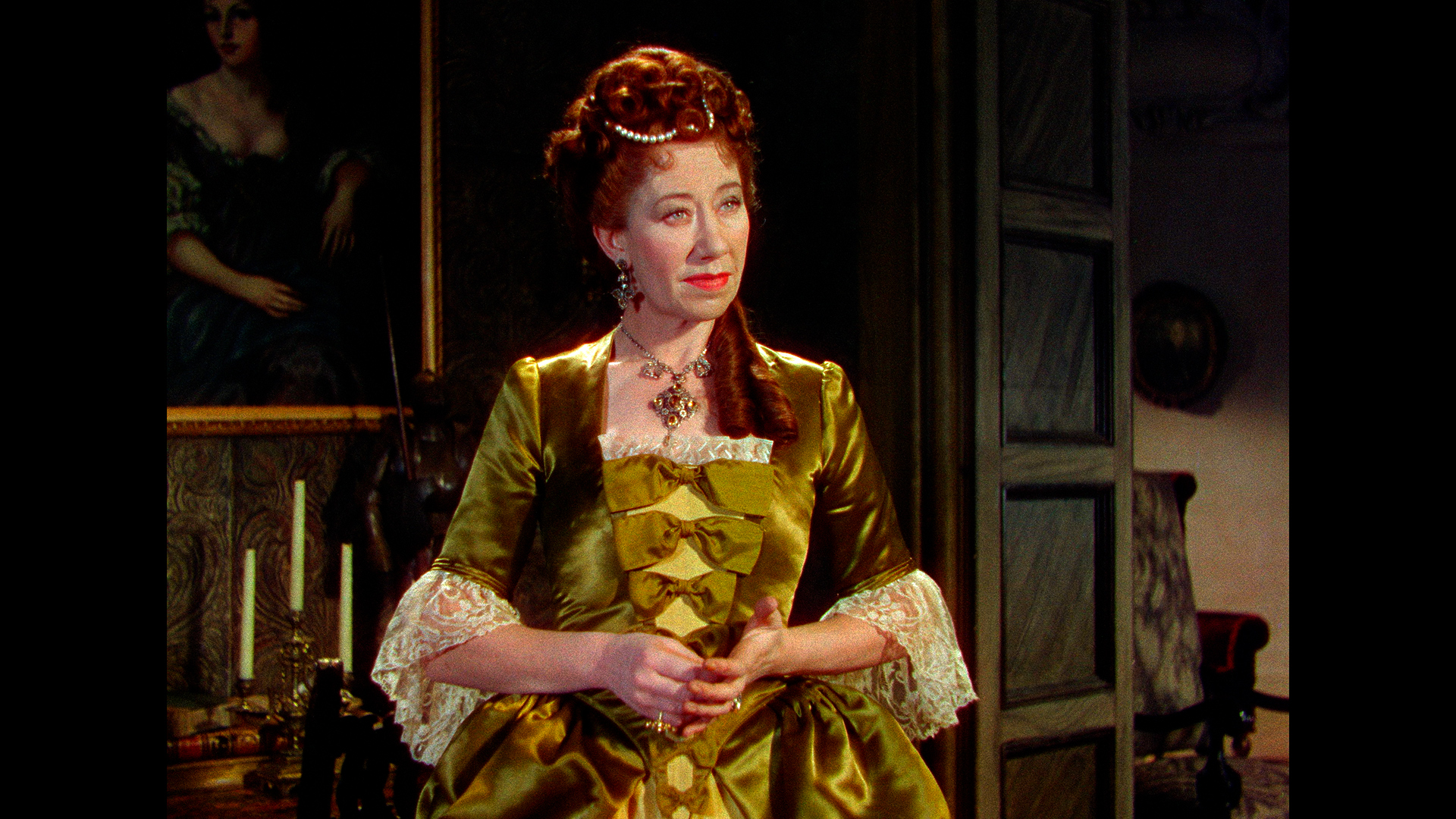 by compositing the three negatives in a way that replicates the format's beautiful appearance on the big screen. Anyone who's seen releases from Warner Archive in the past few years could tell how far we've come, and that also applies to the much-needed restoration performed on this film in 2023 featuring a superb presentation of the film. Studiocanal's track record with 4K restorations has been spotty at times (as anyone who's witnessed the wreckage of Cat's Eye or Red Sonja can attest), but they knocked this one out of the park. That Blu-ray's extras include "A Strange Adventure" (24m16s) with Phuong Le and Matthew Sweet conversing about the film's singular place in Ealing history and its stylistic push past the usual comfort zone of its participants, "A Technicolor Dance" ( 23m6s) with Dr. Josephine Botting covering the state of postwar morale-building films in England and where this film fits in with the zeitgeist as things were changing, a 10m7s look at the restoration process with Filmfinity's Paul Gowlett showing the tricky nature of aligning the negatives, and a behind the scenes gallery.
by compositing the three negatives in a way that replicates the format's beautiful appearance on the big screen. Anyone who's seen releases from Warner Archive in the past few years could tell how far we've come, and that also applies to the much-needed restoration performed on this film in 2023 featuring a superb presentation of the film. Studiocanal's track record with 4K restorations has been spotty at times (as anyone who's witnessed the wreckage of Cat's Eye or Red Sonja can attest), but they knocked this one out of the park. That Blu-ray's extras include "A Strange Adventure" (24m16s) with Phuong Le and Matthew Sweet conversing about the film's singular place in Ealing history and its stylistic push past the usual comfort zone of its participants, "A Technicolor Dance" ( 23m6s) with Dr. Josephine Botting covering the state of postwar morale-building films in England and where this film fits in with the zeitgeist as things were changing, a 10m7s look at the restoration process with Filmfinity's Paul Gowlett showing the tricky nature of aligning the negatives, and a behind the scenes gallery.
The number of three-strip Technicolor classics out on UHD so far has been surprisingly small given how perfect the format is for 4K; at least we have a few big ones like The Red Shoes, The Wizard of Oz, Singin' in the Rain, The War of the Worlds, and The African Queen. This film wouldn't seem like a likely candidate to join them, but thankfully here we are with a magnificent presentation that leaps past the Blu-ray with an extremely vivid and detailed presentation; the HDR10-compatible Dolby Vision grading adds a huge amount here that gives the film an almost three-dimensional quality even in the darkest scenes. A Blu-ray option is also available, but if you're UHD-ready, the choice should be obvious. The LPCM 1.0 mono audio is pristine, and improved optional English SDH subtitles are provided. All three of the featurettes from the earlier Blu-ray are ported over here, and the film can also be played with "The BEHP Interview 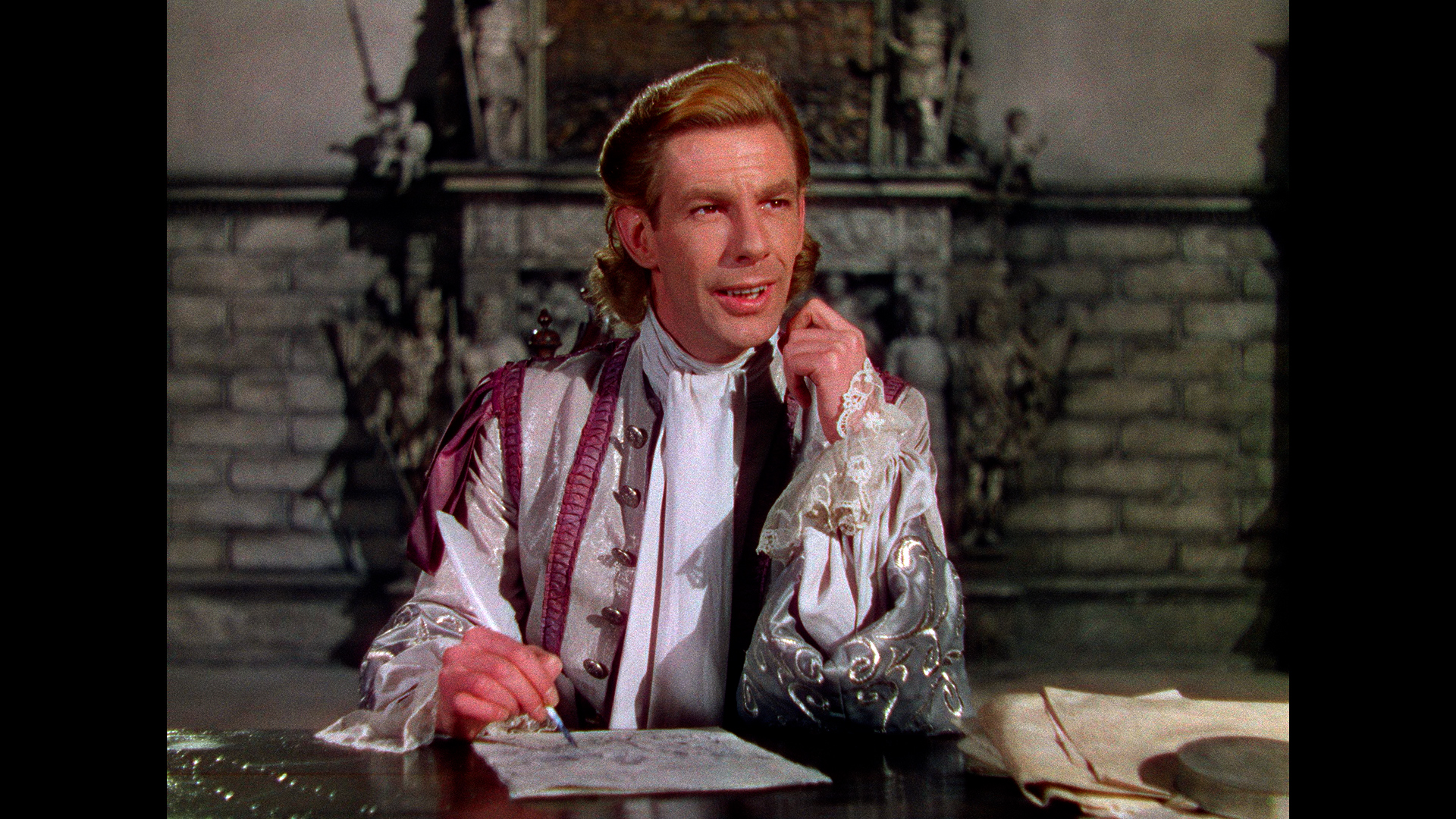 with Michael Relph," an 87-minute audio discussion with the producer, director, and set designer chatting with Sidney Cole and Alan Lawson about his entire career as he worked his way up starting on films like They Drive by Night, got in with the Ealing crowd including a big boost from Cavalcanti, the highlights from his lengthy tenure there and elsewhere with
with Michael Relph," an 87-minute audio discussion with the producer, director, and set designer chatting with Sidney Cole and Alan Lawson about his entire career as he worked his way up starting on films like They Drive by Night, got in with the Ealing crowd including a big boost from Cavalcanti, the highlights from his lengthy tenure there and elsewhere with 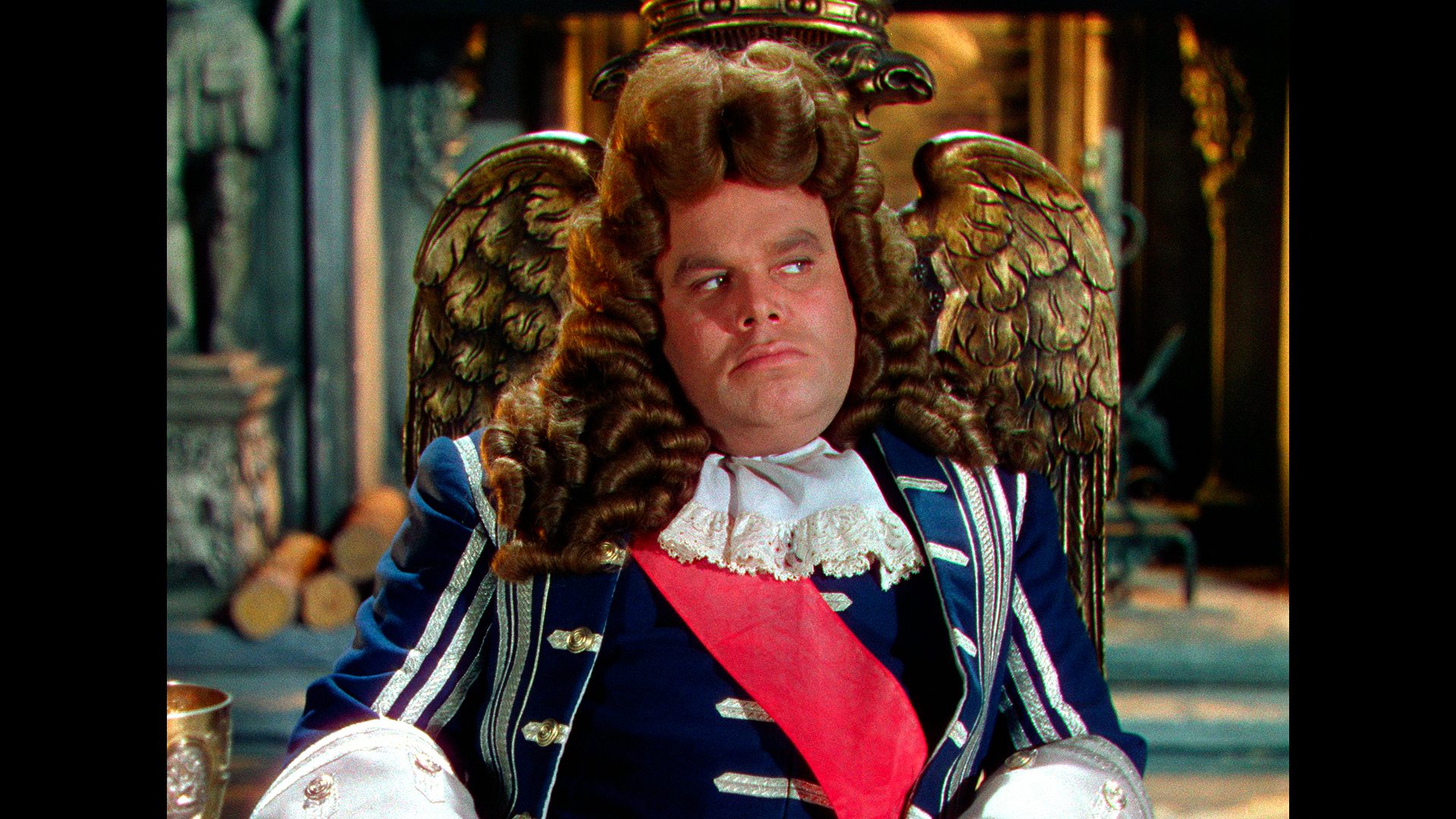 Dearden playing a big part, and a lengthy bit about his disappointment with this film including an attempt to cast Marlene Dietrich in the Robson part.
Dearden playing a big part, and a lengthy bit about his disappointment with this film including an attempt to cast Marlene Dietrich in the Robson part.
In "A Sense of Loyalty (10m48s), director and screenwriter James Dearden chats about his father and Ealing's hopes for the film to be an international hit, the breakneck production schedule at Ealing that bred loyalty to talent regardless of how a film performed, the money-sharing arrangement at the time that helped get projects done, and the commercial challenges this film faced. In "A Life on the Set" (13m12s), unit stills photographer Georgina Slocombe converses about her father's work on this film including the initial differing opinions he had with the Technicolor team, the ultimate positive response to his work aiming to draw on his work in black-and-white, a nice discovery among his archives, the story of how he became a cinematographer, and her memories of being on set throughout her youth since he loved having his family with him. Also included are a 1m24s silent black-and-white bit of Prague location footage from a British Pathé newsreel and six galleries (original storyboards by screenwriter Alexander Mackendrick, two storyboard-to-film comparisons, promotional material, the original film program, and dialogue continuity script), plus an 80-page book with a new essay by Robert Murphy, archival writing by Dearden, producer Michael Balcon, art director Michael Relph, Slocombe, costume designer Anthony Mendleson, and conductor Ernest Irving, archival profile pieces on the main cast, and sample critical responses.
Indicator (UHD)
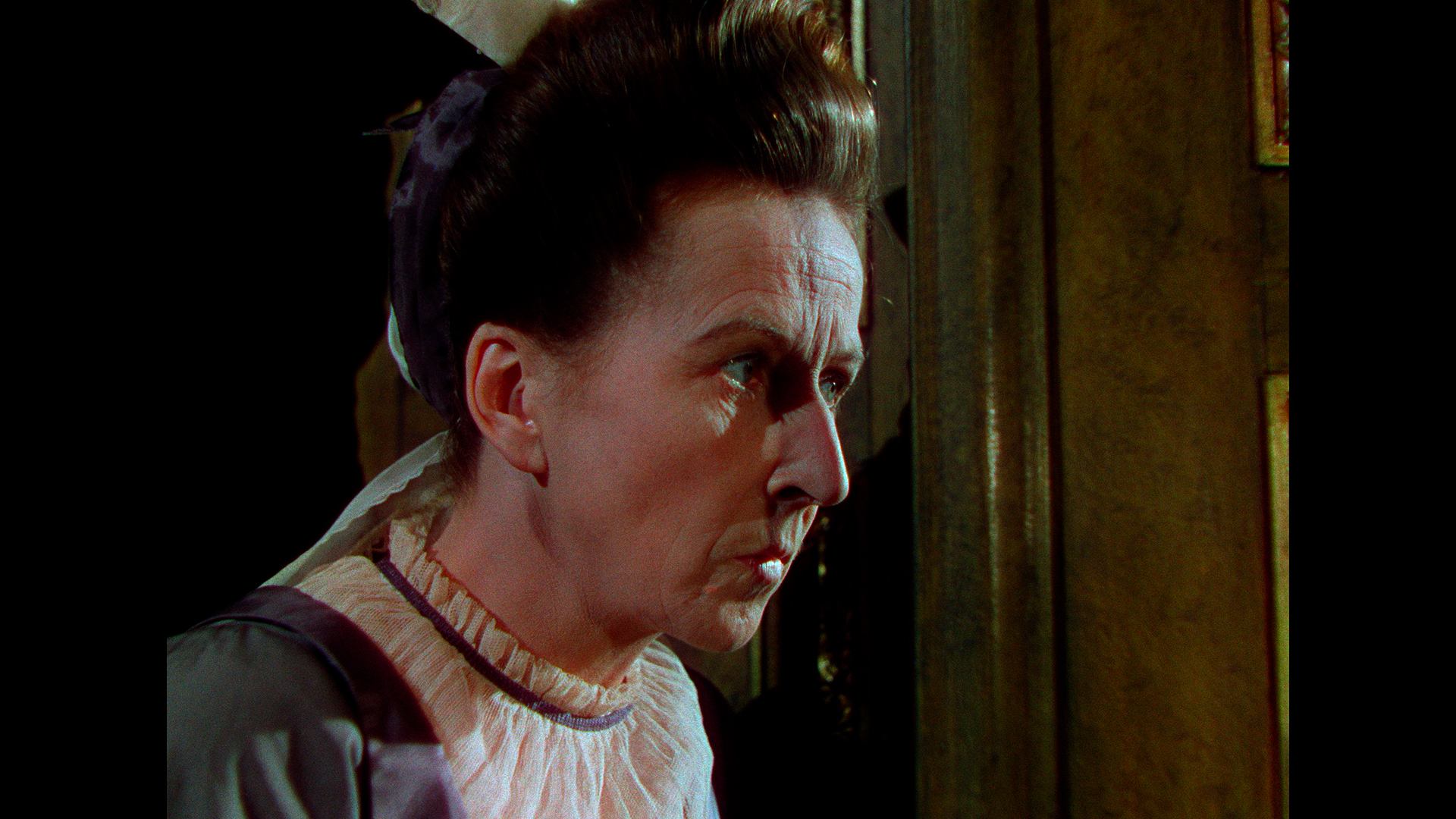
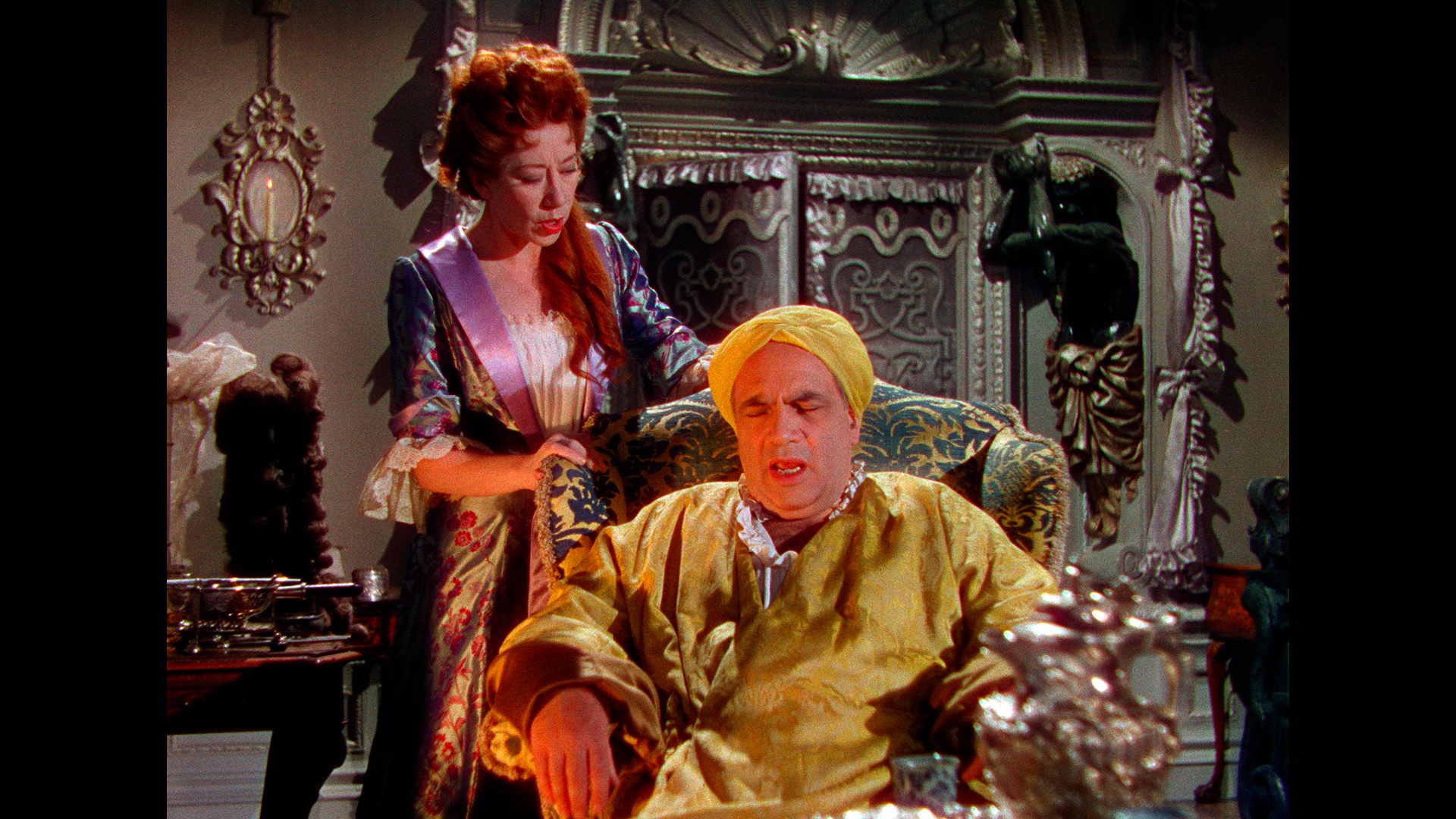
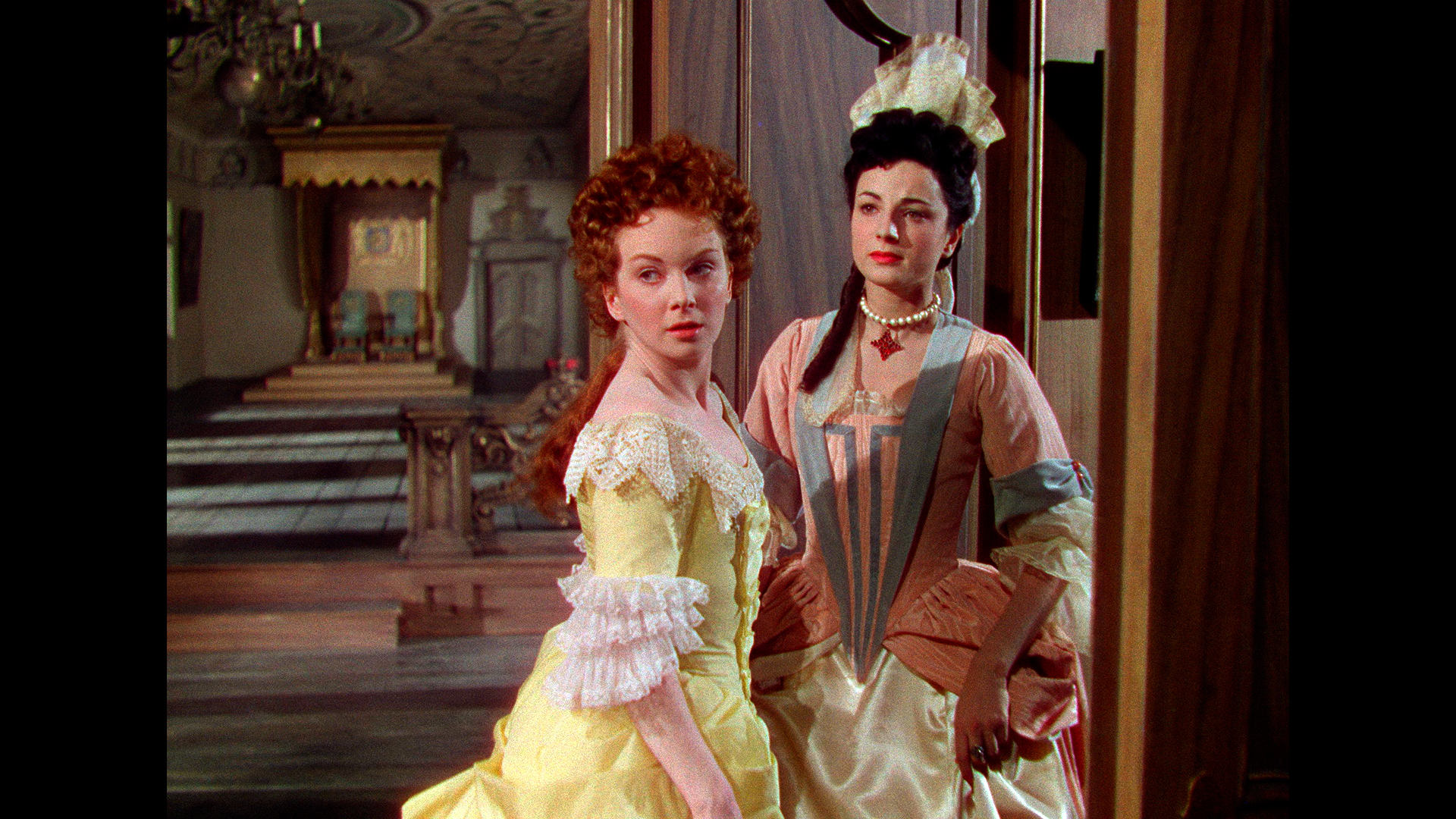
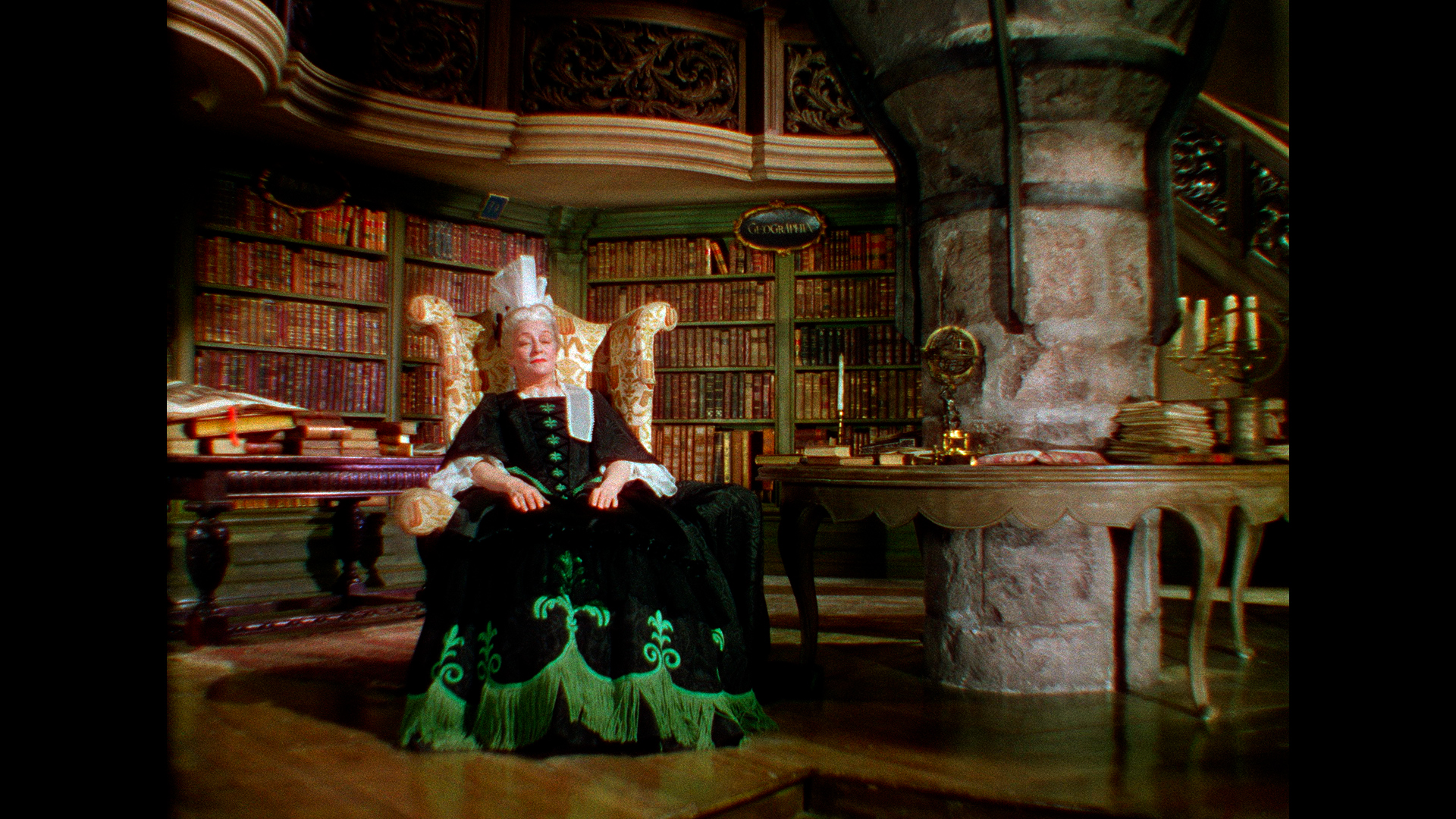
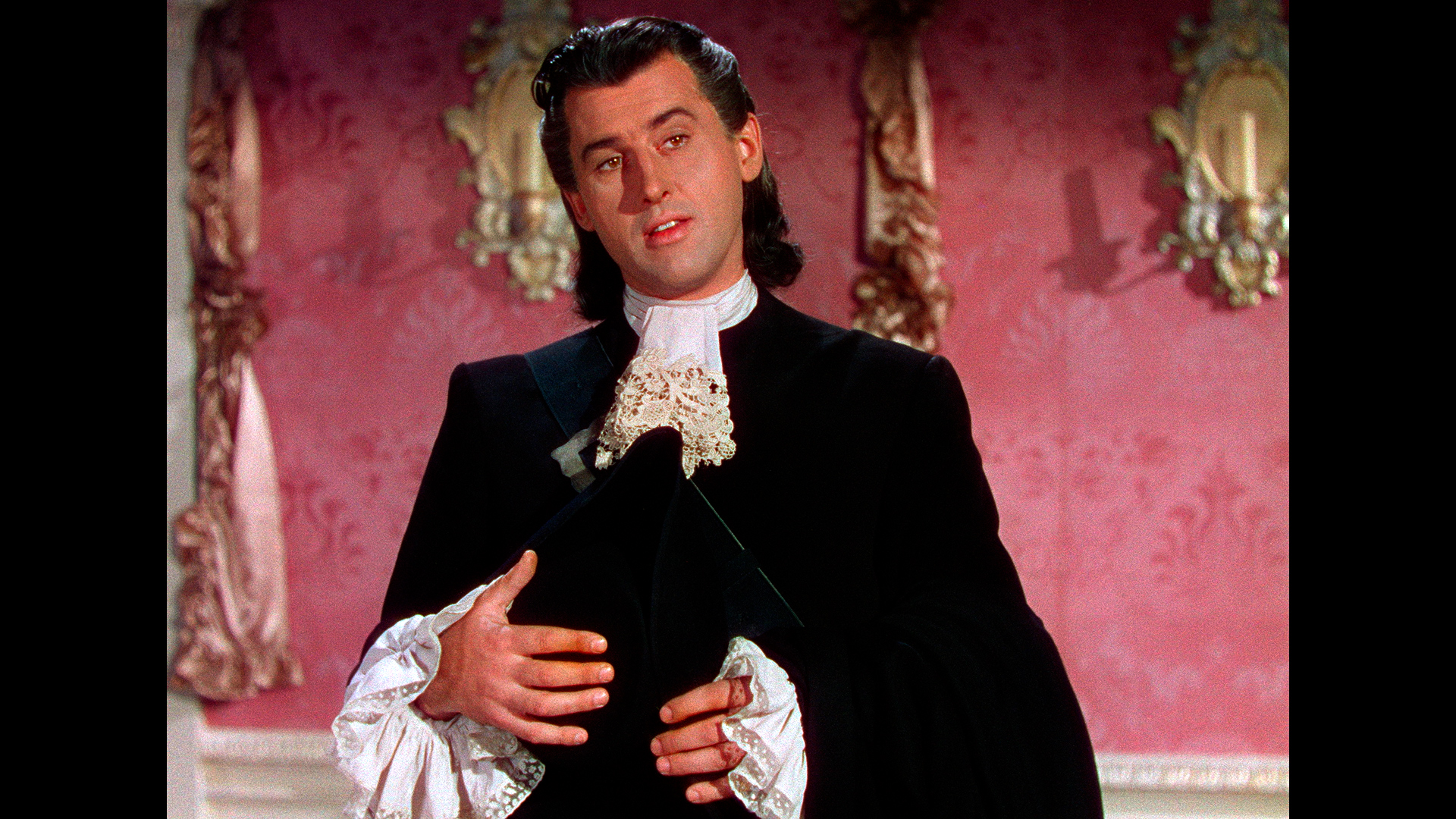
Studiocanal (Blu-ray)
Reviewed on September 3, 2025



 Ealing Studios had established itself as a
Ealing Studios had established itself as a  distinctive and internationally successful name for realistic dramas and emotionally powerful combat films with a wave of much-loved comedies about to start in 1948. That same year they also entered the saturated, eye-popping world of three-strip Technicolor with the opulent Saraband for Dead Lovers, a direct attempt to outdo their closest competitor at the time, Gainsborough Pictures, best known for their black-and-white costume melodramas. They even recruited Gainsborough's biggest leading man, Stewart Granger, to star along with a stable of recognizable Ealing favorites, and the result was a visually ravishing production that earned an Oscar nomination for its art direction (but somehow not for its cinematography by the legendary Douglas Slocombe, an Ealing regular). Based on a mostly factual historical novel by Helen Simpson, the film was placed in the capable hands of one of its finest directors, Basil Dearden, who had become something of a VIP there after dazzling viewers with his stylish touch in The Halfway House, The Captive Heart, Frieda, and especially the framing device for Dead of Night.
distinctive and internationally successful name for realistic dramas and emotionally powerful combat films with a wave of much-loved comedies about to start in 1948. That same year they also entered the saturated, eye-popping world of three-strip Technicolor with the opulent Saraband for Dead Lovers, a direct attempt to outdo their closest competitor at the time, Gainsborough Pictures, best known for their black-and-white costume melodramas. They even recruited Gainsborough's biggest leading man, Stewart Granger, to star along with a stable of recognizable Ealing favorites, and the result was a visually ravishing production that earned an Oscar nomination for its art direction (but somehow not for its cinematography by the legendary Douglas Slocombe, an Ealing regular). Based on a mostly factual historical novel by Helen Simpson, the film was placed in the capable hands of one of its finest directors, Basil Dearden, who had become something of a VIP there after dazzling viewers with his stylish touch in The Halfway House, The Captive Heart, Frieda, and especially the framing device for Dead of Night.  he is also the object of amorous affection from the older,
he is also the object of amorous affection from the older,  austere Countess Clara Platen (Robson). Much court intrigue ensues during wartime and peace as the evolving affair soon becomes a tool for betrayal and tragedy.
austere Countess Clara Platen (Robson). Much court intrigue ensues during wartime and peace as the evolving affair soon becomes a tool for betrayal and tragedy. Studiocanal didn't even come close to capturing its intended look, but technology has made massive leaps in recent years when it comes to presenting three-strip productions accurately
Studiocanal didn't even come close to capturing its intended look, but technology has made massive leaps in recent years when it comes to presenting three-strip productions accurately  by compositing the three negatives in a way that replicates the format's beautiful appearance on the big screen. Anyone who's seen releases from Warner Archive in the past few years could tell how far we've come, and that also applies to the much-needed restoration performed on this film in 2023 featuring a superb presentation of the film. Studiocanal's track record with 4K restorations has been spotty at times (as anyone who's witnessed the wreckage of Cat's Eye or Red Sonja can attest), but they knocked this one out of the park. That Blu-ray's extras include "A Strange Adventure" (24m16s) with Phuong Le and Matthew Sweet conversing about the film's singular place in Ealing history and its stylistic push past the usual comfort zone of its participants, "A Technicolor Dance" ( 23m6s) with Dr. Josephine Botting covering the state of postwar morale-building films in England and where this film fits in with the zeitgeist as things were changing, a 10m7s look at the restoration process with Filmfinity's Paul Gowlett showing the tricky nature of aligning the negatives, and a behind the scenes gallery.
by compositing the three negatives in a way that replicates the format's beautiful appearance on the big screen. Anyone who's seen releases from Warner Archive in the past few years could tell how far we've come, and that also applies to the much-needed restoration performed on this film in 2023 featuring a superb presentation of the film. Studiocanal's track record with 4K restorations has been spotty at times (as anyone who's witnessed the wreckage of Cat's Eye or Red Sonja can attest), but they knocked this one out of the park. That Blu-ray's extras include "A Strange Adventure" (24m16s) with Phuong Le and Matthew Sweet conversing about the film's singular place in Ealing history and its stylistic push past the usual comfort zone of its participants, "A Technicolor Dance" ( 23m6s) with Dr. Josephine Botting covering the state of postwar morale-building films in England and where this film fits in with the zeitgeist as things were changing, a 10m7s look at the restoration process with Filmfinity's Paul Gowlett showing the tricky nature of aligning the negatives, and a behind the scenes gallery.  with Michael Relph," an 87-minute audio discussion with the producer, director, and set designer chatting with Sidney Cole and Alan Lawson about his entire career as he worked his way up starting on films like They Drive by Night, got in with the Ealing crowd including a big boost from Cavalcanti, the highlights from his lengthy tenure there and elsewhere with
with Michael Relph," an 87-minute audio discussion with the producer, director, and set designer chatting with Sidney Cole and Alan Lawson about his entire career as he worked his way up starting on films like They Drive by Night, got in with the Ealing crowd including a big boost from Cavalcanti, the highlights from his lengthy tenure there and elsewhere with  Dearden playing a big part, and a lengthy bit about his disappointment with this film including an attempt to cast Marlene Dietrich in the Robson part.
Dearden playing a big part, and a lengthy bit about his disappointment with this film including an attempt to cast Marlene Dietrich in the Robson part.![]()